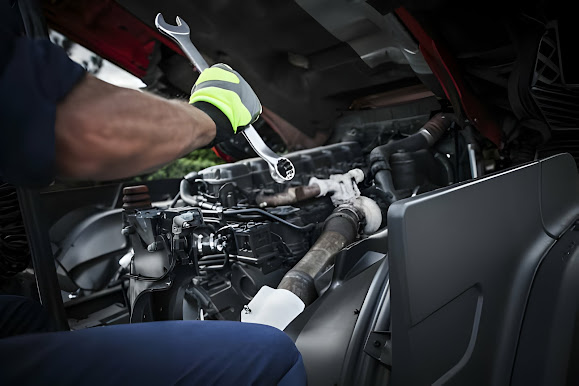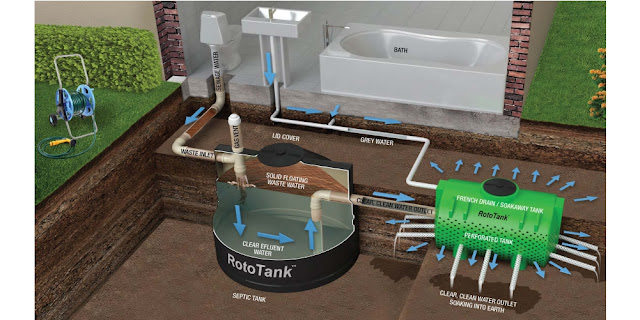Essential Truck Maintenance: What Needs to Be Done?
The Basics of Truck Maintenance
At its core, truck maintenance is about preventive care—taking steps to ensure your truck doesn't run into serious problems down the road. It involves regular inspections, servicing, and repairs to keep everything in working order. This can be broken down into preventive, corrective, and predictive maintenance, each with its own set of strategies and objectives aimed at minimizing downtime and maximizing efficiency.
What Maintenance Needs to be done on a Truck?
Some things should be maintained. The most important ones are routine maintenance checks, essential fluid checks, electrical system and battery maintenance, engine and exhaust system upkeep, record keeping and scheduling maintenance and many more. Let’s learn about it.
Routine Maintenance Checks
Routine checks are the frontline defence against wear and tear, helping to identify issues before they escalate into major problems. Here's a rundown of the critical areas to focus on:
Engine Oil and Filter Changes
A truck's engine is its heart, and oil is its lifeblood. Regular oil and filter changes help keep the engine clean and lubricated, ensuring smooth operation. The frequency of changes depends on the manufacturer's recommendations, the type of oil used, and your truck's specific workload.
Tire Inspection and Maintenance
Tires are where your truck meets the road, and their condition can significantly affect your vehicle's safety and fuel efficiency. Regular checks should include:
Tire Pressure: Keeping tires inflated to the right pressure reduces wear and improves fuel economy.
Tread Depth: Monitoring tread depth helps ensure your tires provide adequate grip, especially in adverse weather conditions.
Rotation: Regular tire rotations promote even wear, extending the life of your tires.
Brake System Checks
The braking system is critical for safety, making its maintenance non-negotiable. This includes inspecting brake pads, rotors, and fluid levels. Any signs of wear or leaks should be addressed immediately to ensure your truck can stop effectively when it matters most.
Essential Fluid Checks and Replacements
Fluids are the vital organs of your truck, each playing a unique role in its operation. Here are the key fluids to monitor:
Coolant Levels: Proper coolant levels and system checks are crucial to prevent overheating, especially under heavy loads.
Transmission Fluid: This fluid ensures smooth gear shifts and should be checked and replaced according to the schedule recommended by your truck's manufacturer.
Power Steering Fluid: Regular checks ensure that your steering remains responsive and light, preventing steering system wear.
Electrical System and Battery Maintenance
The electrical system, including the battery, is the nerve center of your truck, powering everything from the ignition to the headlights. Battery maintenance should include:
Inspection: Regular checks for signs of corrosion or wear.
Care: Keeping terminals clean and ensuring the battery is securely mounted.
Lighting is not just about visibility at night; it's also a critical safety feature, making regular checks of all lights essential.
Engine and Exhaust System Upkeep
Air Filter Replacement: Just like humans need clean air to breathe, your truck's engine needs clean air to operate efficiently. A clogged air filter can reduce engine life, fuel efficiency, and performance. Regularly replacing the air filter according to your manufacturer's guidelines helps the engine "breathe" better, boosting overall efficiency and power.
Exhaust System Inspection: The exhaust system plays a crucial role in diverting exhaust fumes away from the engine and passenger cabin, reducing emissions and noise. Inspecting the exhaust system for leaks, damage, or corrosion is vital for safety and performance. A well-functioning exhaust system ensures your engine runs efficiently, reducing emissions and improving fuel economy.
Seasonal Maintenance Needs
Different seasons bring different challenges for truck maintenance. Here's how to tackle them:
Preparing for Winter:
Antifreeze: Check the antifreeze levels in your cooling system and ensure it's appropriate for your climate to prevent freezing.
Battery Check: Cold weather can reduce battery power. Test your battery and replace it if necessary to avoid starting issues.
Tire Changes: In areas with heavy snowfall, switching to winter tires can provide better traction and safety.
Getting Ready for Summer:
Cooling System: Overheating is more common in hot weather. Ensure your cooling system is flushed and filled as recommended.
Air Conditioning: Check the A/C system for proper operation. A functional A/C is crucial for driver comfort during hot summer months.
Tire Maintenance: Hot roads can increase tire pressure. Check your tires regularly to prevent blowouts and ensure they are in good condition.
Advanced Maintenance Procedures
For the longevity and optimal performance of your truck, certain advanced maintenance procedures should not be overlooked:
Suspension System Inspection: Regular checks can identify wear and tear on shocks, springs, and other suspension components, ensuring a smooth ride and preventing damage.
Transmission Checks: Professional inspections can catch issues early, preventing costly repairs down the line.
Diagnostic Tests: Modern trucks come equipped with sophisticated electronic systems. Regular diagnostic tests can help identify potential electrical issues before they become serious problems.
Record Keeping and Scheduling Maintenance
Keeping detailed records of all maintenance activities is not just about organization—it can also significantly impact your truck's resale value and operational efficiency. Here are some tips:
Maintain a Logbook: Keep a detailed record of all maintenance and repairs, including dates, descriptions of the work done, and parts replaced.
Create a Maintenance Schedule: Develop a schedule based on manufacturer recommendations and your truck’s specific usage patterns. Sticking to this schedule can help prevent unexpected breakdowns and costly repairs.
Conclusion
Regular maintenance is the key to ensuring your truck operates safely, efficiently, and reliably. From routine checks to seasonal preparations, understanding "What maintenance needs to be done on a truck?" allows you to tackle potential issues head-on, preventing minor problems from escalating into major ones. By investing time and effort into maintaining your truck, you're not just saving money on future repairs; you're also ensuring the safety of everyone on the road.
FAQ Section
Q: How often should I change my truck's oil?
The frequency of oil changes depends on the manufacturer's recommendations, the type of oil used, and how the truck is used. Generally, every 5,000 to 7,000 miles is a common interval for trucks under normal operation.
Q: Can I perform truck maintenance myself?
A: Many routine maintenance tasks can be performed by the truck owner, such as oil changes, tire pressure checks, and air filter replacements. However, more complex procedures or diagnostics may require professional services.
Q: How do I know if my brakes need maintenance?
A: Signs that your brakes need attention include unusual noises when braking, a spongy or hard brake pedal, and the truck pulling to one side when braking. Regular inspections can help identify brake wear before it becomes a safety issue.
Q: Why is it important to maintain a record of maintenance?
A: Keeping a detailed maintenance record can help you track the health of your truck, schedule future maintenance, and enhance the truck’s resale value by proving it has been well-maintained.




Comments
Post a Comment